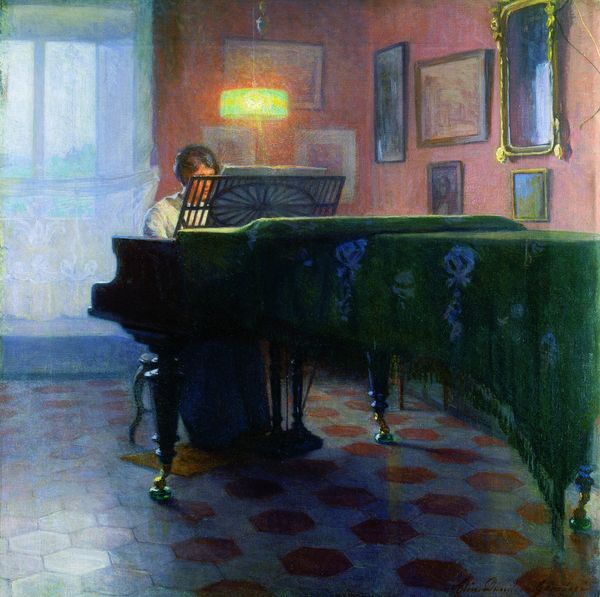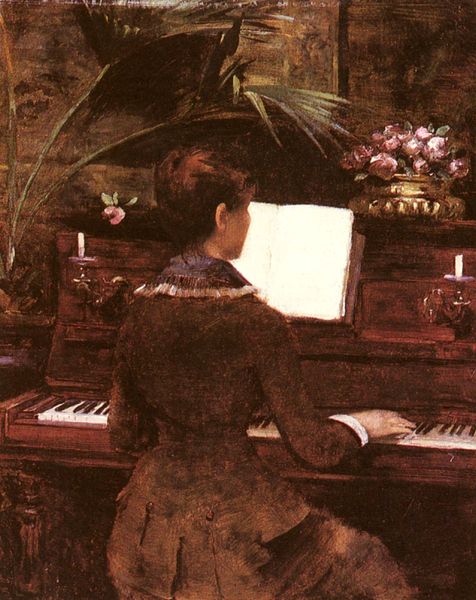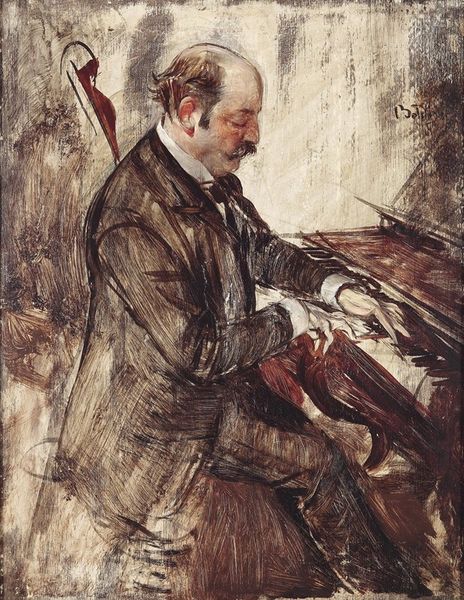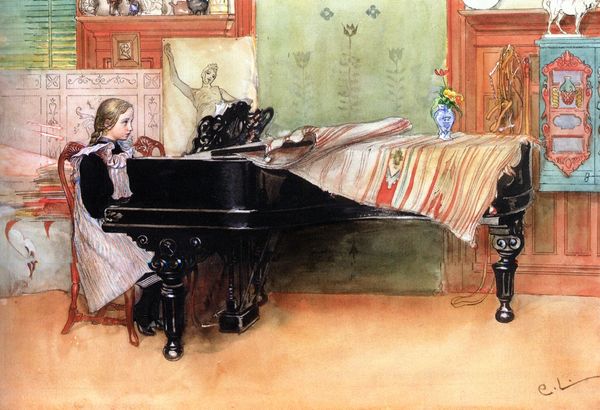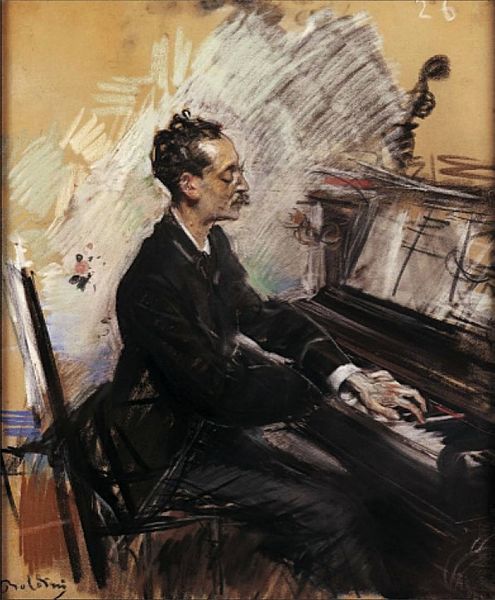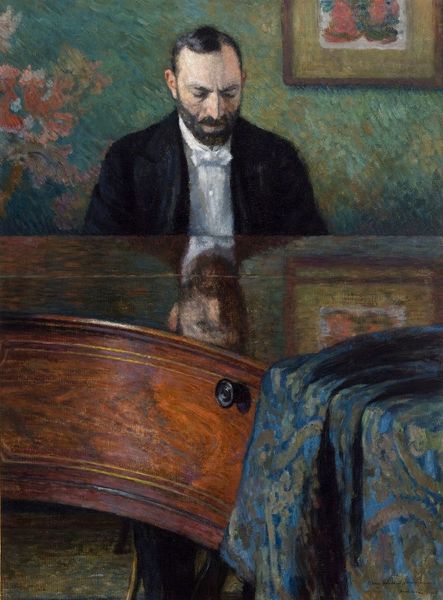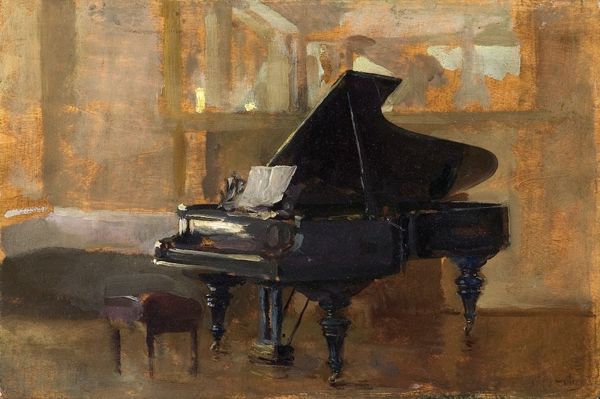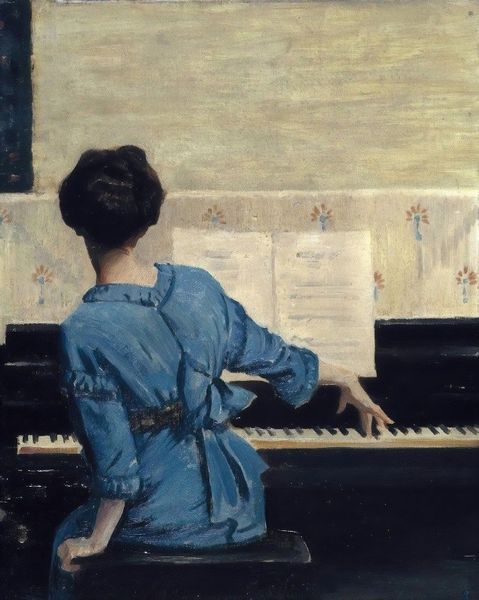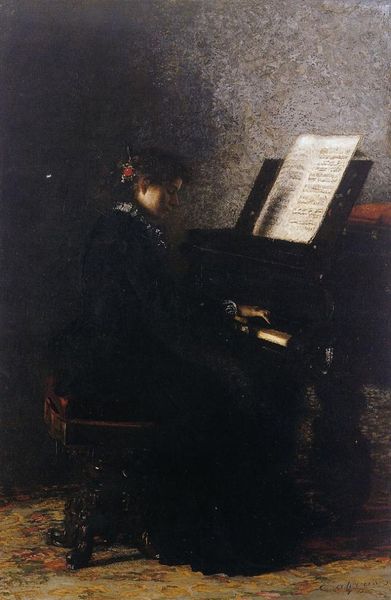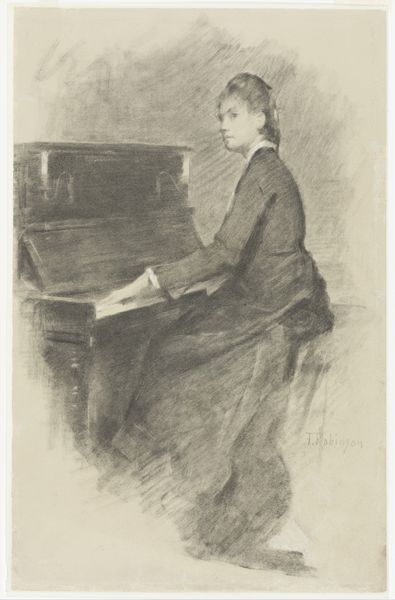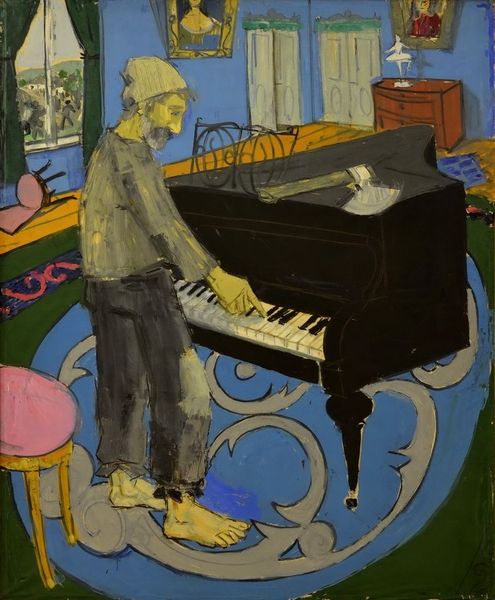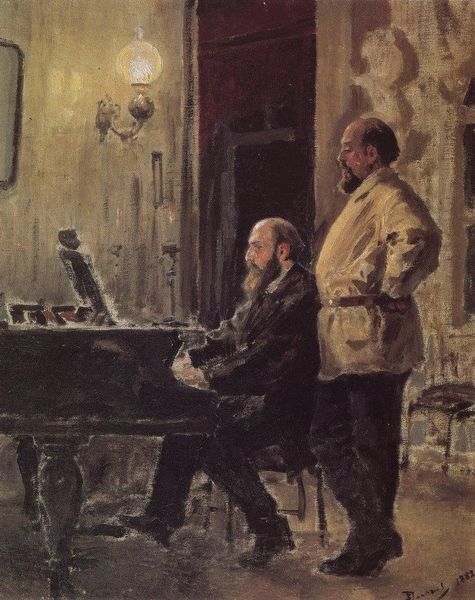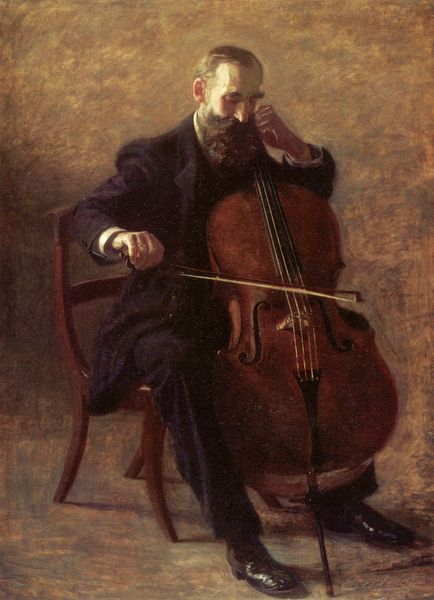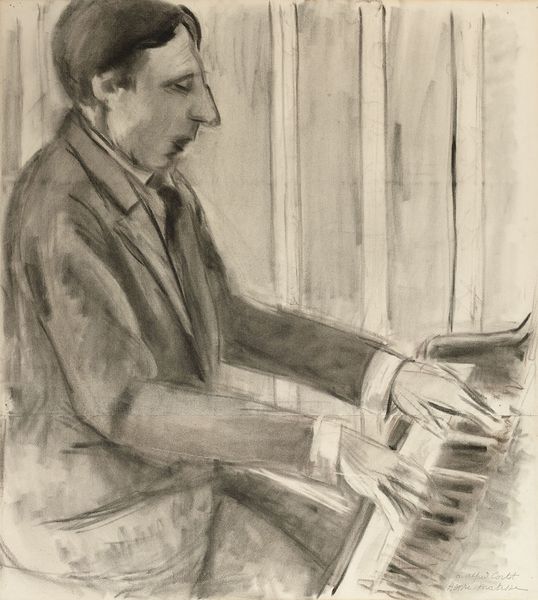
painting, oil-paint
#
portrait
#
painting
#
impressionism
#
oil-paint
#
men
#
genre-painting
#
musical-instrument
Copyright: Public domain
Gustave Caillebotte made this painting of a young man at a piano with oil on canvas. This work resonates with the cultural norms of the French bourgeois in the late 19th century. The figure's engagement with the piano, juxtaposed with the domestic interior, highlights the era's emphasis on refined leisure and artistic cultivation as markers of social standing. Painted during a period of rapid social and economic change in France, Caillebotte subtly comments on the values and aspirations of his milieu. The piano, a prominent status symbol, suggests the cultural capital afforded to those with the means to engage in artistic pursuits. To truly understand the painting's cultural significance, one might research the history of musical education and its relationship to social class in 19th-century France. By examining archival materials and contemporary writings, we can gain insights into the complex interplay between art, society, and individual identity. Art history reminds us that the meaning of art is always contingent on its social and institutional context.
Comments
No comments
Be the first to comment and join the conversation on the ultimate creative platform.
